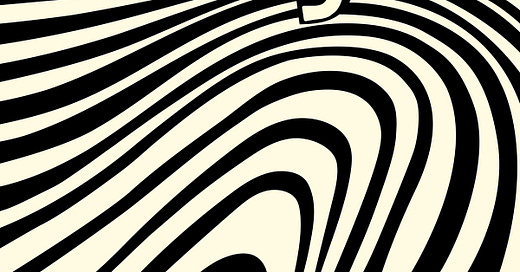Mediterranean psychedelic folk. This is perhaps the best way to describe the Cypriot group Buzz' Ayaz, who are releasing their first, self-titled album today via Glitterbeat Records. Even before the release of the album, the band has won many fans with several fantastic singles, especially with their brilliant live performances. I'm sure their popularity will grow even more after the world has heard this album. Izvorišta has the honor of featuring singer and tzouras player Antonis Antoniou in the Track Tales section, where he has written something about each song on the album.
Track Tales is a section of the site where artists present their songs through short stories regarding them.
Buzzi Ayazi
This was chosen as the opening track of the album by both our label as well us by us. It moves on microtonal eastern melodies on the tzouras and the organ, has a bouncy rhythm and some roaring bass-clarinet riffs.
This is a song that praises the value of peace, cooperation and friendship. At its heart are the many beautiful things that can be achieved by showing understanding, solidarity and love to one another instead of confrontation and hatred. The song alludes to life in Cyprus and, more specifically, Nicosia (the band’s hometown), where the ongoing conflict is manifest in the city’s division; a division that certain political agendas continue to preserve even today, fifty years after the events that divided the island into two. The lyrics use a number of words that are shared between the island’s two main communities (Greek and Turkish), such as gardaş (brother), ayaz (wind) etc., in a deliberate attempt to create a language, both textual and musical, that can bridge the two “Others” and turn them into one. On those stars high above, infinite summers are calling us to join their feast. “So what if the cold wind is coming in, don’t hunch, brother, upon the stars the summers are rustling for us.”
Efdjí (Wish)
A bluesy bedrock produced by the ritual-like beats and the unison between the growling bass clarinet and the bass synth, acts as fertile ground for the eastern psychedelic melodies that get centre-stage on the gritty vocals and the phased tzouras and organ.
Our minds often behave in funny ways: they seem to act against us, affecting everything around us. This includes our relationship with other people, but also with nature. We spend too much time engaging in negative thinking, and this doubtless hurts our feelings, casts a shadow over our well-being and happiness, and deteriorates our relationships. We drown in a vicious circle of worthless thoughts, failing to find the essence, to see each other straight in the eye, to live our life in the present. Life passes quickly in front of us, with us unable to grasp it and live it in its fullness. This particular “Wish” is for a breeze to come and take away all this “dust”, to clear our minds, so that we may bloom.
Fysa (Blow)
The first of the album's three instrumental tracks, this one is based on an ancient tune that has been traced throughout the Iranian region. These songs have travelled and been modified in Greece and Minor Asia. To our ears, it originated with a recording called "Gyrna Gyrna" (Come back), performed by the renowned Greek singer Yiota Lydia. We used to hear this song played live at practically every wedding when we were kids. And this, in our opinion, is how a community eventually incorporates cultural traits into their identity.
The first of the album's three instrumental tracks, this one is based on an ancient tune that has been traced around the Iranian region. These melodies have travelled and been adapted in Minor Asia and in Greece. To our ears, it originated with a recording called "Gyrna Gyrna" (Come back), performed by the renowned Greek singer Yiota Lydia. We used to hear this song played live at practically every wedding when we were kids. And this, in our opinion, is how a community eventually incorporates cultural traits into their identity. Our approach to the melody is quite radical of course. Apart from the adaptation of the main melody, a number of other parts were written, arranged, and included new lyrics, which consist of just one line at the very end: "Into the leaves of the heart, blow once more, blow."
It is heavily influenced by the sound and music of the American band Morphine, who had a big impact on us when we were starting this band.
Zali (Dizziness)
Zali is about not conforming to the rules set by any conventional structures. It’s about taking a different direction from the ordinary, about the urge of exploring new experiences and falling in love with them whatever the cost. It’s about freeing our spirit and immersing ourselves fully into the magical dizziness of the present, even if we know that we might get scorched in the end. It’s about not applying mathematical rules and calculating obstacles, and about challenging everything in order to make our wishes come true, even for tiny moments. It’s about daydreaming, about hovering tenderly in our imagination, about letting our senses get drunk and dizzy on the purity of life. It’s about love.
This is a possibly the brightest song of the album. It is inspired by North African and Arabic microtonal melodic lines. It begins with a 7/8 time signature and at the outro it changes to 6/8.
Árkos (Wild)
With its electric spark – the result of a distorted slide tzouras, gritty bass clarinet riffs and dirty analogue synth gestures – this heavily fuzzed Anatolian blues-rock number is an effort to discover our wild self, to release all the instincts that are kept restricted and buried inside, both by ourselves and by those who want to benefit from this restriction. Capitalism wants minds that are not dreaming, heads that are empty and have no critical thought. It creates plushy pillows for them, so that they can be easily manipulated. Religions and politicians act in a similar manner, killing our intuition, our feelings, and, by extension, our freedom. In order to keep living, we need to ride a wild lightning and dive into the cliffs, into the evenings and into the galaxies, to be anchored in our very presence.
Ate Pale (Here We go Again) / (Instrumental)
In terms of arrangement and composition, this is arguably the most intricate track on the entire record.
Additionally, it contains a few technically challenging passages that required additional time for private rehearsals from each of us before it could be recorded. It begins in a 9/8 time signature and ends in a 4/4 time signature with a bluesy triplet feel. It has a section with the two rhythms mentioned above superimposed, as well as an organ solo.
Meres (Days)
A political song talking specifically about the pain produced by divisions. The division we have in our island but also by any division and any conflict. It talks about the hope for the new days to come that will be filled with drunkenness and kissing. This is probably the darkest/heaviest song of the album. Using some dubby effects on the drums and the vocals and some heavily fuzzed tzouras phrasing.
It is an adaptation of the song “Tzinourkes Meres” found on Antonis’s first solo album “Kkismettin”.
Alu (instrumental)
The album's last track is actually the one we began experimenting with when we first got together in our rehearsal space. We most likely worked on it for the longest period of time. It served as our cornerstone for exploring our textures, balances, and sounds.
Keep reading:
Festival review: Globaltica 2024
Kad sam prvi put vidio fotografiju sličnu ovoj naslovnoj, odmah sam poželio otići na Globalticu, festival koji se održava na sjeveru Poljske, u Gdyniji. Ideja je dodatno oživjela nakon nezaboravnog tjedna u veljači kada su Monsieur Doumani i Dunjaluk održali rezidenciju i kada su se neka prijateljstva toliko produbila da smo počeli kovati planove gdje i…






